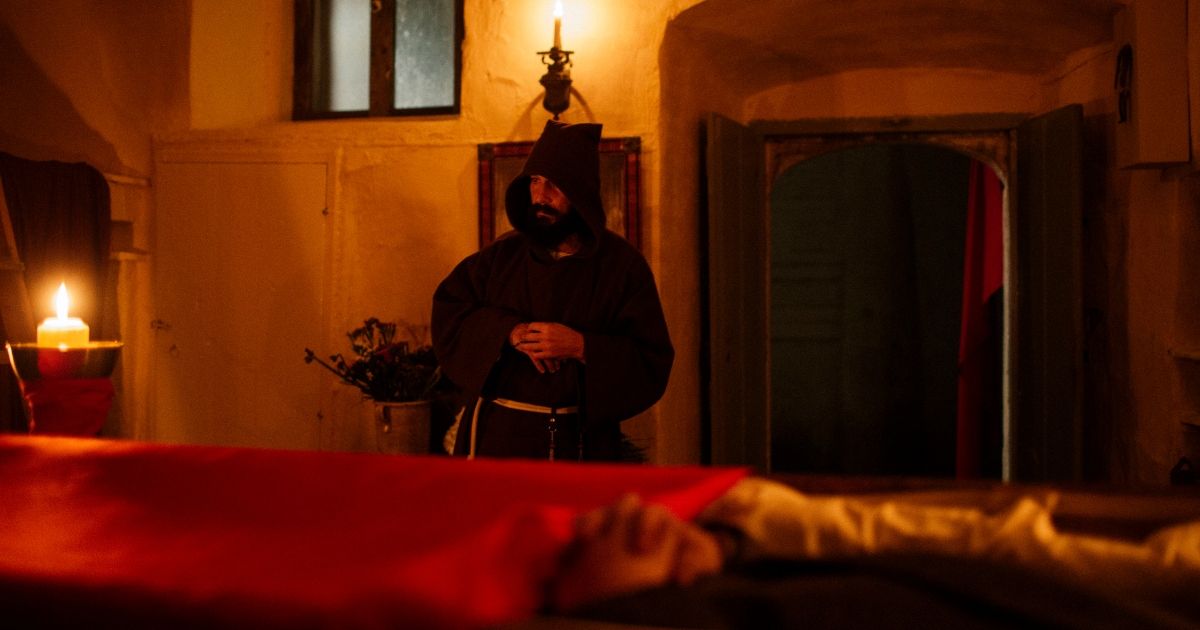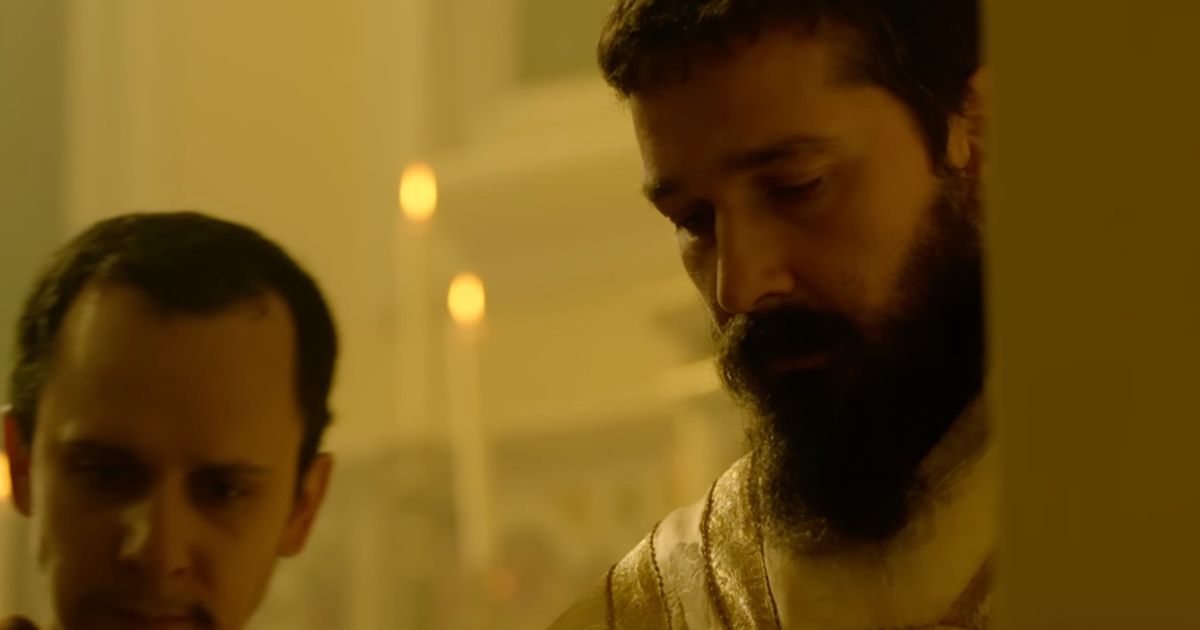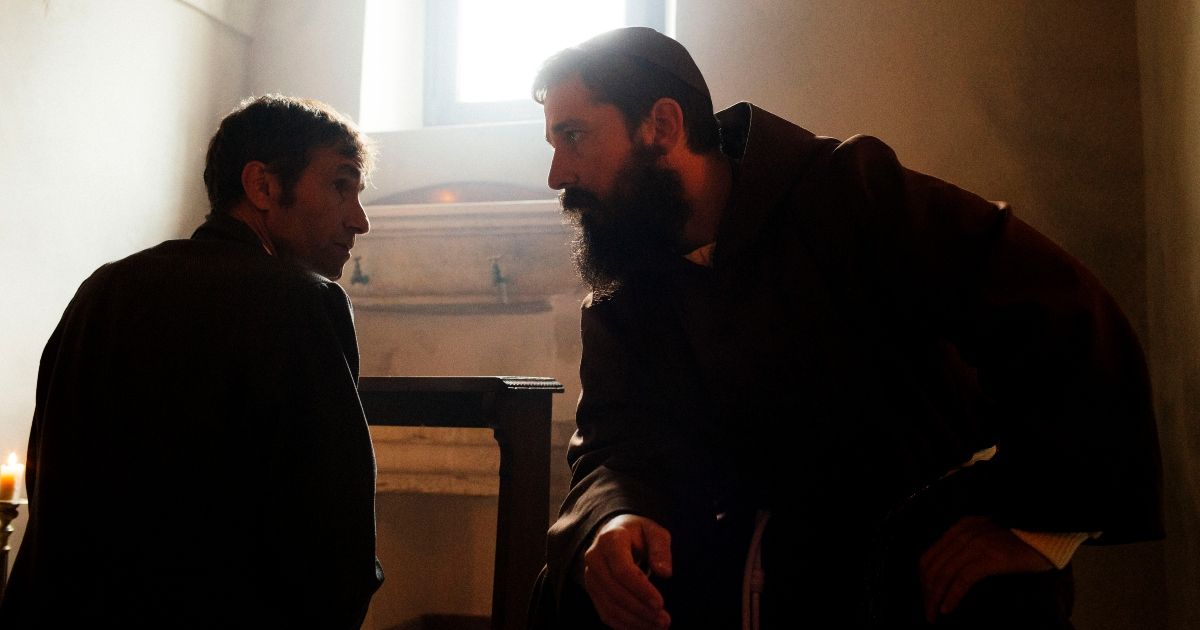Director Abel Ferrara is one of the undisputed greats of American cinema. Yet, for whatever reason, he seems to be embraced by (and embraces) other cultures more than this one. Maybe it’s his iconoclastic behavior, the enfant terrible turned dangerous drug user turned streetwise sober Buddhist. Maybe it’s the raw violence and gritty humanity of his films, like an early Martin Scorsese who never got a bigger budget and wouldn’t to compromise if he did. Maybe it’s karma, or maybe it’s God — either way, most cinephiles wouldn’t change a thing.
That’s because Ferrara’s extensive filmography is so uniquely his. He’s perfectly himself, whether he’s directing a vampiric allegory about dependence (The Addiction), a gangster epic with Christopher Walken (King of New York), the greatest corrupt cop film ever made (Bad Lieutenant), or a brilliant Gulf War-era remake of ’50s sci-fi (Body Snatchers). Now, a veritable ex-pat and sober septuagenarian, Ferrara has directed an extremely unique biographical drama about Saint Pio of Pietrelcina.
However, it feels almost as much a biography of the director himself (and even the actor who plays Pio, Shia LaBeouf). Padre Pio exists as a perfect confluence of forces and happenstance, and while it’s undoubtedly divisive, it’s undisputedly one of the most distinct films of the year, and one of the most fascinating religious films since Scorsese’s own Silence. Ferrara, bathed in Roman sunlight, spoke with MovieWeb about the film.
Abel Ferrara Searches for Padre Pio
Set just after World War I and during the rise of fascism in Italy, Padre Pio alternates between the Franciscan monk (played by LaBeouf) as he suffers through faith and becomes a priest, and the agricultural workers and Socialists who suffer through political and economic realities. Pio would become their saint in many ways. As a result, the film is both ascetic and spiritual, but also political and historical. It’s religious, but it’s human.
Of the many filmmakers who have explored the intersection of the sacred and profane (Schrader, Bresson, Bergman, Scorsese), Ferrara has been one of the most explicit and intense. While his films have perhaps mellowed in their physical intensity over time, the spiritual and emotional intensity remains the same in movies like Mary and Padre Pio, a very earthy, visceral exploration of orthodoxy and orthopraxy. But what fascinated Ferrara about Saint Pio, enough to not just make this film but also a documentary about the man, Searching for Padre Pio?
“I mean, it’s just the journey he had, you know, coming from being this kind of special, crazy kid having visions. He was a young boy,” explained Ferrara, “going from Napoli to Apulia really is like a big change for a kid like that. He went to a foreign world. And he comes into it in the middle of that nightmare of, you know, returning soldiers, the Spanish Flu, a massacre in the center of town. His response was the stigmata, which was his spiritual response to it; that massacre was the beginning of World War Two.” Ferrara continued about Pio with the filmmaker’s anomalistic amalgam of brilliant rumination and Bronx accented profanity:
Him, with his psychic ability, his f*cking sensitivities, I mean, he didn’t know 100 million people were gonna get killed, but he knew something f*cked up was gonna happen. And that kind of response of the pain, the suffering towards a goal, I mean, he’s compassionate, he’s empathetic, he was the great confessor. Later on, he built the $35 million hospital in one of the poorest parts of Italy. He’s an incredible character, never mind being sainted, you know what I mean? How many people idolize him — I adore him — and had their lives change by him?
History, Fascism, and Elections
Compassion has its etymological roots in the very phrase “to suffer with,” and Pio (the film and the character) demonstrates great compassion for the working class and the politically marginalized. It seems to create a direct throughline between the suffering of Christ, the Christlike suffering of Pio, and the suffering of the proletariat masses as elections are rigged, protests are stifled, and corruption runs rampant. Some have even suggested that Padre Pio is, if not an allegory, at least a reflection of recent political turmoil and false claims of a “stolen election.” Yes and no, for Ferrara.
“Well, it’s all about that. I mean, it’s what happened. We were shooting basically a documentary, you know, none of this is made up. This is what Pio came to, and this is what was happening in that town. And those people actually died, you know, 13 people died,” said Ferrara. “This was right after the Russian Revolution. There was like a lot of paranoia about, and it was well-founded with what Lenin and Trotsky just pulled it off. They lined up the priests, shot them all, closed the churches, and set up shop in a whole different direction. So the Italians were like, ‘We ain’t gonna let that happen,’ but the flip side is the birth of the fascist party. Because fascism began in Italy, not in Germany. But it spread quick.”
“We had the script for it before [the 2020 election] happened,” continued Ferrara, noting the almost inevitable similarities between some election scenes in Padre Pio and in real life, then and now. “You know, it’s gonna be the result. Everyone is in love with elections until you lose, and then you’re either gonna buy into the process or you don’t. The right was not accepting it, and all of a sudden, free elections didn’t mean anything. And you could talk about funky election machines, and counting this and that, but, you know, we gotta believe in a process.”
Ferrara on Casting LaBeouf
The political and historical sections of the film are fascinating in a way that simply drops you into the action without silver-spooning a bevy of details, but the cloistered scenes with Pio himself are some of the most cinematically rich. Pio receives confessions, he has nightmares and struggles with his past, he suffers through faith the way people of God often do. Ferrara has worked with some of the biggest stars of all time (Christopher Walken, Willem Dafoe, Harvey Keitel, Juliet Binoche, Bob Hoskins, Madonna, Gérard Depardieu, Isabella Rossellini, Vincent Gallo, Melanie Griffith, Benicio Del Toro, Ethan Hawke, and more), and is now adding Shia LaBeouf to his incredible history of collaborations.
LaBeouf is an undoubtedly embattled actor, having been accused of abuse in recent years. He’s excellent here in a role that feels almost too perfect to be true. The actor has converted to Catholicism and is practicing sobriety, mirroring not just aspects of Pio but Ferrara himself. The whole thing simply felt right to Ferrara. “He’d just had a religious conversion. He’d just began recovery. I’m in recovery, so we had that in common,” said Ferrara. He continued, discussing LaBeouf’s more method acting approach:
I didn’t know a lot about him. I don’t need to know about somebody’s work. I just go with my gut feeling man, especially with actors. I could feel it was right. I knew it was right. And he immediately jumped in his truck and took off for wherever, that mission outside of LA, with the Franciscan monks. And he just sat in the parking lot. Okay, finally they came out and said, ‘What are you doing?’ He said, ‘I’m gonna play Padre Pio. These guys, they’re not cynical, it’s not an attitude, so it’s like, ‘Okay, fine, come on inside.’ And then he began his new journey into Catholicism.
LaBeouf, Argento, Ferrara, Forgiveness
The way the devil seems to taunt Pio in the film about his previous debaucheries is like a graphic reminder of the accusations leveled against LaBeouf, and also feels like a confessional moment for Ferrara himself, coming to terms with his decades of decadence. Asia Argento also appears in the film as an almost Satanic figure who nonetheless confesses to Pio, but in a disturbing way.
“You know, that scene is right out of the letters of Pio. Right out of them,” explained Ferrara. “He’s talking about a confrontation with the devil. He’s talking specifically about a tall man, but the way he lays it out, it can be anyone, it’s not so clear-cut […] I knew we needed an actor [to nail it]. It’s one thing having a letter that’s very specific about an event that really happened, but we had to get it up in front of the camera.”
It’s a haunting scene. Like LaBeouf, Argento has come under fire during #MeToo for alleged actions in the past. Seeing the two of them with Ferrara (perhaps the cinematic patron saint of iniquity-turned-transcendence), united in a film about suffering and spiritual transformation, is surprisingly moving. Say what you will about platforming people with alleged incidences of violence and awful behavior, but watching Padre Pio elucidates the monstrosity that is the human subject, and the amount of suffering, compassion, and forgiveness it takes to fight the beast.
“Forgiveness is what it’s all about, what Christ is all about,” said Ferrara. “And you know, if you can’t find that… I mean, a lot of people can’t. I know it’s not easy. It’s very, very difficult. It’s the hardest thing to pray for your enemy, to turn the other cheek, find forgiveness, that’s like, it’s easy to say, not easy to do. But if you can’t find it, I don’t see any hope, because we’re all sinners. I mean, we all have the capacity to be sinners. Very few of us walk in Jesus’ shoes.”
From Gravitas Ventures, Padre Pio is now in select theaters and available to purchase or rent through video on demand.
Stay connected with us on social media platform for instant update click here to join our Twitter, & Facebook
We are now on Telegram. Click here to join our channel (@TechiUpdate) and stay updated with the latest Technology headlines.
For all the latest Education News Click Here



